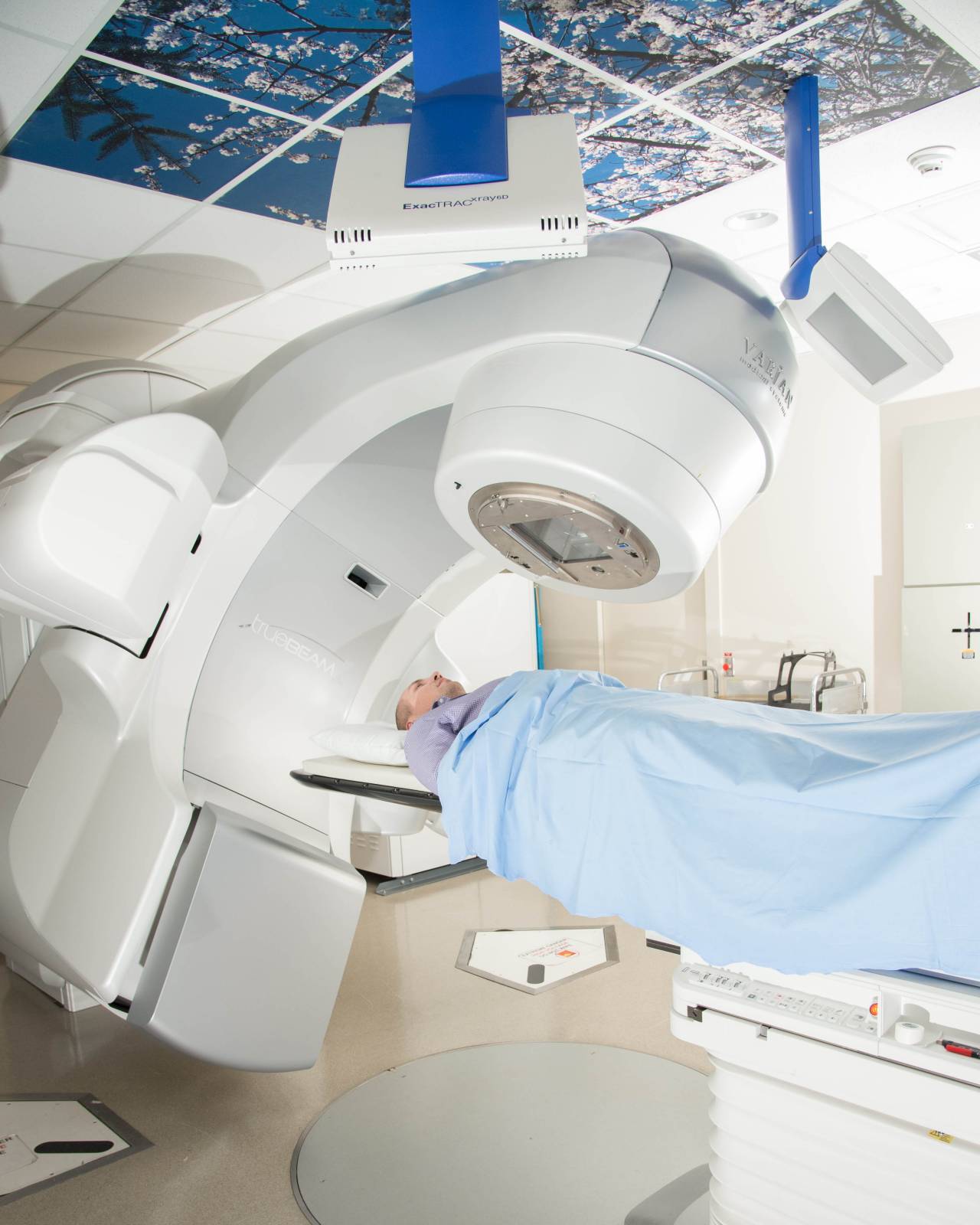How the iPad is revolutionizing cancer care in British Columbia
May 17, 2018
Found in Access, BC Cancer - Prince George, Radiation Oncology
British Columbia’s northern region is vast at over 600,000 km2 (approximately the size of France) and home to nearly 300,000 people, half of whom are now expected to face cancer in their lifetime. This means that there is an urgent need to develop newer and more effective methods to deliver and monitor treatment.
Over the last five years my research team has lead two emerging research fields within radiation oncology to help address just that. They are known as patient reported outcomes (PROs) and precision radiotherapy for metastatic disease.
A PRO is a health outcome directly reported by a patient, such as pain, function, and their quality of life, in contrast to health provider rated outcomes such as tumour size. PROs can be used directly in patient care to help patients receive support for their symptoms or side effects, and have been shown to decrease hospital visits and increase survival by allowing health care providers to offer care before symptoms become more serious.
PATIENT REPORTED OUTCOME RESEARCH
We identified a need to better collect patient-reported outcomes, and so we developed a provincial program to electronically collect these outcomes using tablets (e.g. iPads).

The program, known as Prospective Outcomes and Support Initiative, not only uses novel electronic collection of PROs, but importantly engages many front-line care providers (e.g. nurses, counsellors, radiation therapists) to use these PROs to further their interaction with patients, and improve symptom management in real time.
Not only can these PROs be used for immediate clinical care, but since we have collected the data electronically, we can also use it for large research projects. The collection of patient reported outcomes is enabling teams of researchers to address many questions, and this resource is just beginning to be tapped.
To date we have collected PROs on over 45,000 patients, which has allowed us to compare whether one radiation technique is associated with better patient reported outcomes then another technique, as well as look for associations between dose to normal tissue and organs and patient reported side effects.
Early research has already led to significant changes in practice, such as the increased use of single fractions of radiotherapy for bone metastases. This is important as it is associated with fewer side effects, and saves patients money because of fewer treatments needed, which is especially important for patients livening in rural and remote locations, such as Northern BC.
We are also now leading Canadian collaborations through the Canadian Partnership for Quality Radiotherapy in an effort to expand BC’s approach to PRO collection and use to other provinces, starting in Atlantic Canada.
PRECISION RADIOTHERAPY RESEARCH
Secondly, we have focused on leading developments in precision radiotherapy techniques. Precision radiotherapy includes new advanced techniques that treat tumours to higher doses while sparing nearby normal tissues from the possible damage from radiotherapy.
They include innovative imaging techniques on radiation treatment machines, adaptive radiotherapy for motion (such as breathing), rotational (rather than fixed beam) techniques, and complex software and equipment upgrades with support from medical physicists.

We were a leading member of the international SABR-COMET trial which randomized patients to stereotactic ablative radiotherapy (SABR) versus routine care for patients with a limited number of metastastes. One of the goals of the trial was to investigate whether SABR treatment could cure some of these patients, improve average survival, while not significantly reducing quality of life. Results of this trial will be presented in fall of 2018 as a plenary talk at the American Society of Radiation Oncology Conference.
Currently, the BC Cancer – Prince George is leading a phase II trial further exploring the potential side effects from SABR in the setting of five or fewer metastases, titled SABR-5. This important trial is open in all 6 BC Cancer centres, and has increased patient access to this novel radiotherapy technique.
We are excited to combine these two focuses in our upcoming clinical trials led by the Centre for the North. We have developed several phase III randomized controlled trials comparing precision radiotherapy techniques with standard of care, and will collect PROs through BC Cancer’s data collection system system as one of the main outcomes of each trial.
Based on preliminary result of SABR for metastatic disease, we are excited to offer these novel techniques, in the setting of well-controlled trials, for patients across BC and beyond.
Thanks for reading this week. Next blog, I will discuss the importance of BC Cancer Foundation donors in supporting advancements in cancer research and care.
Dr. Olson


